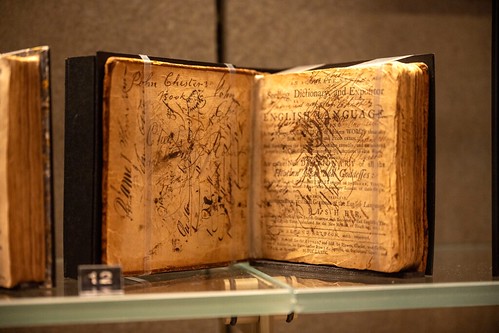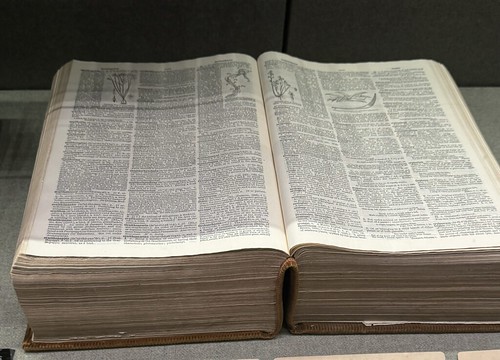
PREV ARTICLE
NEXT ARTICLE
FULL ISSUE
PREV FULL ISSUE
HISTORY OF THE ENGLISH DICTIONARYWe love words at The E-Sylum, and bibliophiles (numismatic or otherwise) should enjoy the new Grolier Club exhibit on the history of the English dictionary. -Editor
Samuel Johnson once joked in a letter that This expansive exhibition of 171 books begins with Renaissance glossaries. These forerunners did not set out to define every known word. Instead, they set a narrower goal of annotating technical terms circulating in particular professions. The following cases in the exhibition chronicle the slow but steady rise of comprehensive English language dictionaries during the Enlightenment. Rivalries and pedantic snickering often marred these dictionaries, especially in the 19th century. To be fair, these lexicographers were in a double bind, fearing accusations of plagiarism and copyright infringement if entries were too similar, and anticipating vitriol if new definitions went too far and challenged earlier work.
In 1829, for instance, lexicographer Noah Webster flew into a rage, complaining that revisions of his work made him look
The contemporary influence of even these historical dictionaries is inestimable. In the past five years, according to the exhibition catalog, more than 40% of Supreme Court decisions drew upon definitions from early American dictionaries to elucidate laws.
To read the complete article, see:
For more information on the Grolier Club , see:
Wayne Homren, Editor The Numismatic Bibliomania Society is a non-profit organization promoting numismatic literature. See our web site at coinbooks.org. To submit items for publication in The E-Sylum, write to the Editor at this address: whomren@gmail.com To subscribe go to: https://my.binhost.com/lists/listinfo/esylum All Rights Reserved. NBS Home Page Contact the NBS webmaster 
|


